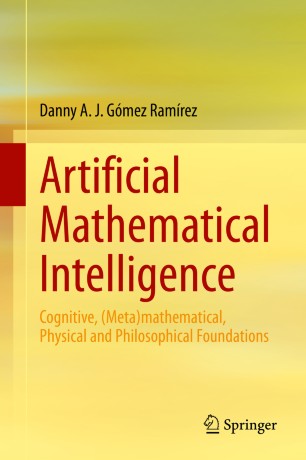

Most ebook files are in PDF format, so you can easily read them using various software such as Foxit Reader or directly on the Google Chrome browser.
Some ebook files are released by publishers in other formats such as .awz, .mobi, .epub, .fb2, etc. You may need to install specific software to read these formats on mobile/PC, such as Calibre.
Please read the tutorial at this link: https://ebookbell.com/faq
We offer FREE conversion to the popular formats you request; however, this may take some time. Therefore, right after payment, please email us, and we will try to provide the service as quickly as possible.
For some exceptional file formats or broken links (if any), please refrain from opening any disputes. Instead, email us first, and we will try to assist within a maximum of 6 hours.
EbookBell Team

0.0
0 reviewsThis volume discusses the theoretical foundations of a new inter- and intra-disciplinary meta-research discipline, which can be succinctly called cognitive metamathematics, with the ultimate goal of achieving a global instance of concrete Artificial Mathematical Intelligence (AMI). In other words, AMI looks for the construction of an (ideal) global artificial agent being able to (co-)solve interactively formal problems with a conceptual mathematical description in a human-style way. It first gives formal guidelines from the philosophical, logical, meta-mathematical, cognitive, and computational points of view supporting the formal existence of such a global AMI framework, examining how much of current mathematics can be completely generated by an interactive computer program and how close we are to constructing a machine that would be able to simulate the way a modern working mathematician handles solvable mathematical conjectures from a conceptual point of view.
The thesis that it is possible to meta-model the intellectual job of a working mathematician is heuristically supported by the computational theory of mind, which posits that the mind is in fact a computational system, and by the meta-fact that genuine mathematical proofs are, in principle, algorithmically verifiable, at least theoretically. The introduction to this volume provides then the grounding multifaceted principles of cognitive metamathematics, and, at the same time gives an overview of some of the most outstanding results in this direction, keeping in mind that the main focus is human-style proofs, and not simply formal verification.
The first part of the book presents the new cognitive foundations of mathematics’ program dealing with the construction of formal refinements of seminal (meta-)mathematical notions and facts. The second develops positions and formalizations of a global taxonomy of classic and new cognitive abilities, and computational tools allowing for calculation of formal conceptual blends are described. In particular, a new cognitive characterization of the Church-Turing Thesis is presented. In the last part, classic and new results concerning the co-generation of a vast amount of old and new mathematical concepts and the key parts of several standard proofs in Hilbert-style deductive systems are shown as well, filling explicitly a well-known gap in the mechanization of mathematics concerning artificial conceptual generation.